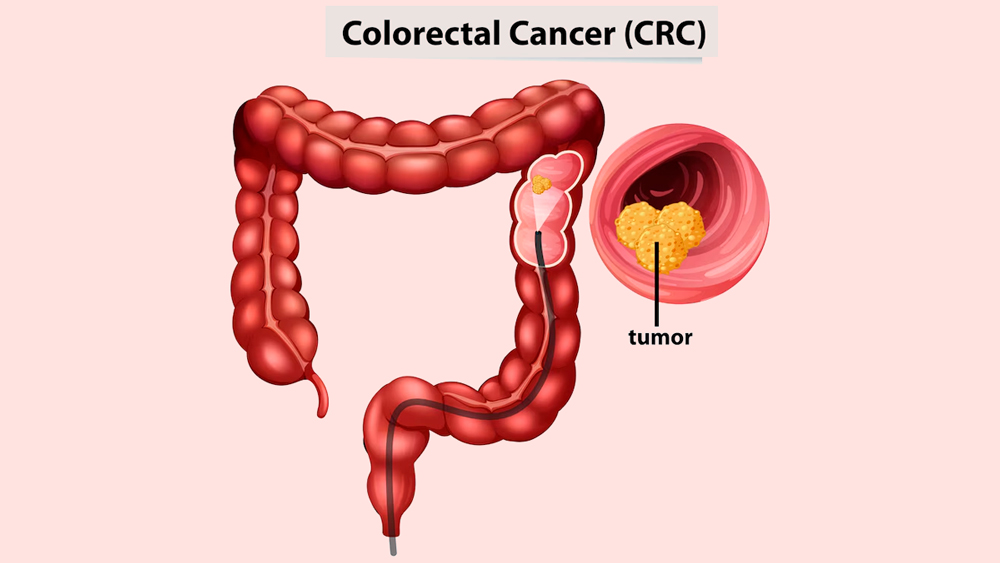
Bowel cancer, also known as colorectal cancer, is increasingly being recognised as one of the most concerning health threats globally. Once thought to predominantly affect older individuals, alarming statistics now show a significant rise in cases among the younger age group of 25-49 years. This growing trend underlines the urgent need to raise awareness about risk factors, symptoms, and available treatments for effective prevention and management.
Table of Content:-
A recent study published in The Lancet highlights the concerning rise in bowel cancer cases among individuals under 50 years old, marking a sharp increase over the past few decades. The study underscores lifestyle factors, dietary habits, and genetic predispositions as significant contributors to this alarming trend. Researchers call for urgent public health strategies to address this issue, including enhanced screening protocols and educational campaigns to encourage early diagnosis and prevention.
Understanding Bowel Cancer

To understand bowel cancer, its prevalence and risk factors, OnlyMyHealth team interacted with Dr Gaurav Jaswal, Director and Consultant Radiation Oncologist at TGH Onco Life Cancer Center, Talegaon. He explains, “Bowel cancer is known to impact the large bowel, which includes the colon and rectum. It has become a common occurrence in people aged 25-49. The symptoms of bowel cancer that are commonly seen include changes in bowel habits because of diarrhoea, constipation, or the feeling of incomplete emptying, thin stools, blood in the stools, abdominal pain, bloating, cramping, anal or rectal pain, weight loss, a lump in the rectum or anus, fatigue, tiredness, and even blood in the urine. Though these symptoms can overlap with other conditions, a proper diagnosis of bowel cancer will help to initiate timely intervention.”
These varied symptoms can often be mistaken for less severe gastrointestinal issues, leading to delays in diagnosis. Therefore, recognising early warning signs is critical to ensuring prompt medical attention.
Also read: Rising Stomach Cancer Cases in India: Unhealthy Lifestyles, Stress, and Key Risk Factors
Risk Factors: A Growing Concern

Dr Jaswal emphasises, “Understanding the risk factors for bowel cancer is necessary for prevention, early detection, and successful patient outcomes. Age over 50 is a common risk factor, but younger individuals are increasingly being diagnosed. Dietary habits play a crucial role, with diets low in fibre and high in red or processed meats posing significant risks. Other lifestyle factors include excessive alcohol consumption, smoking, and lack of physical activity.”
Medical conditions such as inflammatory bowel disease, Crohn’s disease, and ulcerative colitis also elevate the risk of developing bowel cancer. Furthermore, genetic predisposition can increase susceptibility, highlighting the importance of knowing one’s family medical history.
Dr Jaswal advises, “While some factors, like genetics, are not under anyone's control, making healthier lifestyle choices and undergoing regular screenings can help one prevent bowel cancer. Act immediately even if you have a history of bowel cancer.”
Also read: From Blood In Stool To Unexplained Weight Loss: Expert Lists 6 Signs Of Bowel Cancer
Treatment Options

The approach to treating bowel cancer largely depends on the stage of the disease and the patient’s overall health. Dr Jaswal elaborates, “Surgery is the primary treatment for most patients. For some, chemotherapy may also be recommended, either before surgery to shrink the tumour or after to reduce the risk of recurrence. Radiation therapy targets cancer cells and helps to manage the disease.”
Emerging treatments such as targeted therapies and immunotherapy are proving to be highly promising in the fight against bowel cancer. These treatments are tailored to the individual’s specific cancer profile, offering new hope for better survival rates and quality of life.
Dr Jaswal underscores the importance of early diagnosis, stating, “With early diagnosis and individualised treatment plans, many patients achieve successful outcomes. It is the need of the hour for patients to follow the guidelines given by their doctors and improve their quality of life.”
A Call to Action
Bowel cancer’s increasing prevalence among younger populations is a wake-up call for individuals and healthcare systems alike. Raising awareness, promoting healthy lifestyles, and ensuring timely access to medical care can collectively help curb this alarming trend.
Dr Jaswal concludes, “Timely intervention and a commitment to healthier lifestyle choices are essential in reducing the burden of bowel cancer. With advancements in treatments and increasing awareness, there is hope for better outcomes for patients worldwide.”
As we confront the challenge posed by this second deadliest cancer, understanding and addressing the risk factors is the first step towards safeguarding public health.
Also watch this video
Read Next
Lung And Colon Cancers Linked To Airborne Microplastics, Says Study: Tips To Mitigate Risks
How we keep this article up to date:
We work with experts and keep a close eye on the latest in health and wellness. Whenever there is a new research or helpful information, we update our articles with accurate and useful advice.
Current Version